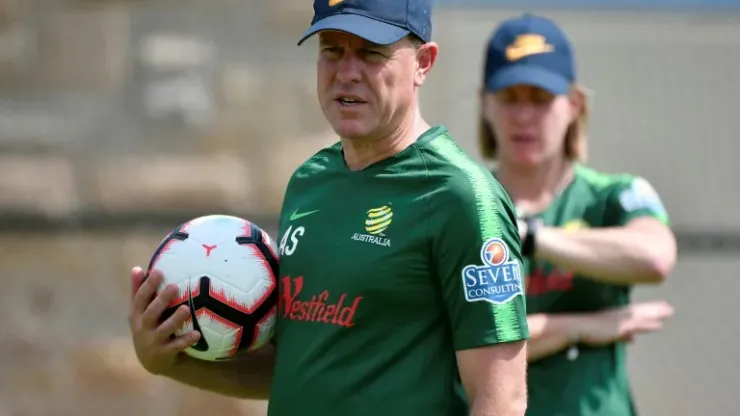Sydney (AFP) – There were calls for answers Sunday over the sudden sacking of Australia’s women’s football coach Alen Stajcic just five months from the World Cup, as his assistant resigned in protest against the decision.
Football Federation Australia chief David Gallop said Saturday when announcing the governing body’s decision that he had lost faith in the 45-year-old Stajcic, while concerns over “workplace” and “player welfare” issues were also cited.
The sacking followed two recently conducted confidential FFA surveys to evaluate the standard of the team environment and culture. Gallop said the results, along with interviews with players and staff, had led the FFA to determine that the team environment was “unsatisfactory” and change was needed.
No specific details of the problems were given by the FFA, and the Football Coaches Australia body criticised the treatment of Stajcic and called for transparency.
“It is important that the decision-makers in the sport make decisions for the right reasons. In this instance, that evidence has not been forthcoming,” FCA president Phil Moss said in a statement.
“The broader process used to end Alen’s tenure was highly questionable.”
The newly established FFA Women’s Council said it was not consulted or made aware of the decision to sack Stajcic.
The council’s independent chair Ros Moriarty told national broadcaster ABC she would “request full details of how stakeholder surveys escalated to a sudden sacking”.
“I would like to understand what specific feedback has left our national women’s team in a World Cup year, without the leader who has orchestrated their success over the past few years,” she said.
Prominent former Socceroo Robbie Slater also called for clarity, writing in a column for Sydney’s Sunday Telegraph that “the Australian public deserves a real answer why such a successful coach has been sacked”.
“You don’t have to be an insider to see that this is an astonishing decision,” he wrote.
“It’s unfair for the FFA to hide behind ‘confidential’ reviews — that will only inflame the whispering campaign, and in the process further ruin Stajcic’s reputation.”
The move came despite Stajcic taking the team to as high as fourth in the FIFA world rankings in one of their most successful eras.
Matildas’ assistant Nahuel Arrarte said later on Saturday that he was resigning “with a heavy heart” after the decision was announced to sack Stajcic, who he praised as a “dedicated and selfless individual”.
The Sydney Morning Herald reported that the Matildas’ management had ignored medical staff about training loads and game schedules.
Sources told the ABC relations had broken down between Stajcic and some of his players, and that some felt they were “under unacceptable mental stress”.
But other current players including Chloe Logarzo and Kyah Simon tweeted that the news was “shattering” and they were “shocked” and “disappointed”, which commentators said suggested there were tensions in the dressing room.
The players are due to meet with Gallop on Monday and Professional Footballers Australia chief John Didulica said “we trust they will have an opportunity to get a deeper understanding of FFA’s decision”.
The FFA’s ousting of Stajcic came just months after New Zealand’s women’s football coach Andreas Heraf quit amid claims of bullying, harassment and intimidation.
The women’s World Cup takes place in France in June and July, while Australia are due to play New Zealand, South Korea and Argentina on home soil in the Tournament of Nations from February 8.
200+ Channels With Sports & News
- Starting price: $33/mo. for fubo Latino Package
- Watch Premier League, Women’s World Cup, Euro 2024 & Gold Cup
The New Home of MLS
- Price: $14.99/mo. for MLS Season Pass
- Watch every MLS game including playoffs & Leagues Cup
Many Sports & ESPN Originals
- Price: $10.99/mo. (or get ESPN+, Hulu & Disney+ for $14.99/mo.)
- Features Bundesliga, LaLiga, Championship, & FA Cup
2,000+ soccer games per year
- Price: $5.99/mo
- Features Champions League, Serie A, Europa League & Brasileirāo
175 Premier League Games & PL TV
- Starting price: $5.99/mo. for Peacock Premium
- Watch 175 exclusive EPL games per season






